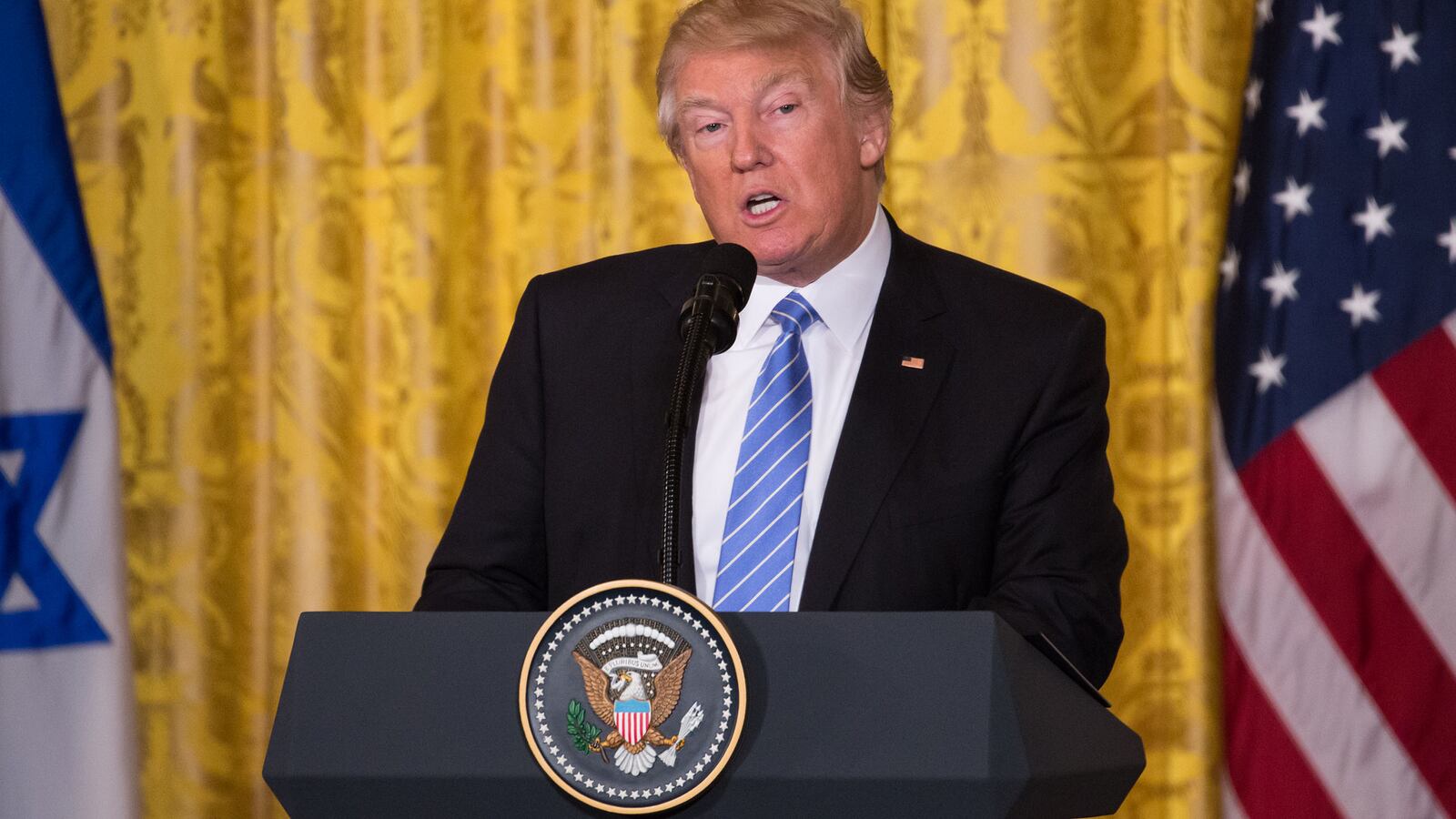A little more than three weeks after his inauguration, Donald Trump gave his first-ever press conference as president.
Over the course of 77 dizzying minutes, Trump told journalists hastily corralled into the East Room that Russian interference in the 2016 presidential election was “fake news,” asked an African-American reporter whether she was friends with the Congressional Black Congress, and declared that members of the media who printed leaks from within his own White House should be “ashamed of themselves.”
One year later, that circus-like exchange remains Trump’s first, last, and only formal press conference—the longest period of time without a solo press conference held by an American president in at least half a century.
According to records stretching back to the Coolidge administration and compiled by the American Presidency Project, Trump has gone longer without conducting a formal solo press conference than any president since at least Lyndon Johnson. By the end of his first year in office, President Barack Obama had held 11 solo press conferences; President George W. Bush had held five.
Asked whether Trump plans to hold press conferences in the near future, or ever, the White House disputed the notion that the president’s historic scarcity of traditional press availability indicated a scarcity of overall press availability.
“The president and his administration have been one of the accessible administrations,” White House deputy press secretary Lindsay Walters told The Daily Beast. “The president frequently holds impromptu gaggles, takes questions from the pool and engages daily with the American people.”
Trump has indeed answered questions from members of the press in other settings, primarily in informal gaggles with the White House press pool—a rotating group of correspondents who document the president’s daily movements and occasionally get locked in rooms with plastic bags covering the windows while he golfs. On some occasions, the president will spontaneously answer a shouted question as he boards Marine One, or even turn chance encounters with the press pool into miniature pressers.
The president has also appeared in 22 “two-and-two” joint press conferences with other world leaders, in which each official calls on two reporters of their choosing—roughly in line with the number of such such conferences by his recent predecessors.
Trump frequently uses the two-and-two format to allow questions from friendlier outlets. His tendency to grant the first question to Fox News’ John Roberts is a running joke in the press corps: During a September 2017 question-and-answer session alongside the emir of Kuwait, Trump withdrew a question from Roberts by saying, “Actually, we’ll go to somebody else this time, John. You’ve been doing enough.”
But Trump’s fitful engagements with the press—seemingly random, often rushed, and held entirely on his own terms—represent a departure from the relationship past presidents had with the people assigned to cover the White House.
“There’s value in those nontraditional exchanges,” Margaret Talev, White House correspondent for Bloomberg and president of the White House Correspondents’ Association, told The Daily Beast. “But we also really encourage this president, and any American president, to hold open, normal news conferences, because they are of real value to the American public.”
The president’s hesitance to engage directly with members of the press outside informal gaggles is a shift in communications strategy from his freewheeling presidential campaign, when Trump was refreshingly available and candid with the press. Trump even sent fundraising emails blasting Democratic opponent Hillary Clinton as “HIDING HILLARY” for going 278 days without conducting a formal press conference.
The apparent embargo on formal press conferences may be a strategy to prevent self-inflicted damage to a president whose public statements are rarely constrained by facts, but according to veterans of past administrations, the blackout may be doing damage to the administration’s credibility in the long run.
“There’s no better accountability mechanism than the president answering questions directly from the press corps,” a former Obama administration official told The Daily Beast. “That exchange is good for the country, good for democracy, and it’s also good for the White House. Reporters are generally channeling the questions on the minds of the American people. It’s really the best way to reassure allies and critics alike that you’re engaged and focused on advancing the interests of all Americans.”






